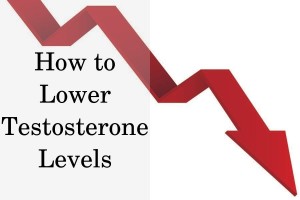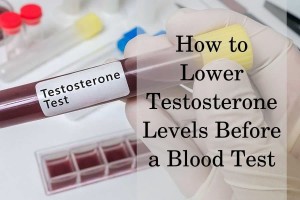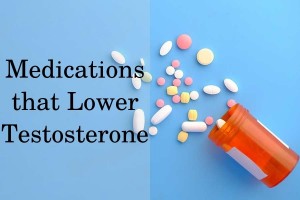In this article
Are you troubled by symptoms of low testosterone (T) such as weight gain, chronic fatigue, lack of libido and muscle loss?
If you are then you have probably heard of testosterone replacement therapy (TRT) and its effectiveness, so you visited a medical doctor for diagnosis and prescription.
Unfortunately, many physicians won’t prescribe testosterone therapy if your T levels fluctuate near the bottom of the reference range but aren’t under the minimum, regardless of your symptoms.
This is why many men may be looking for safe and easy ways to temporarily lower their T levels before a blood test in order to receive a prescription for their symptoms.
We strongly advise against attempting to crash your T levels to deceive your doctor and get a prescription.
Instead, we offer a free consultation with our medical expert, who will carefully consider both your symptoms and hormonal levels to find the optimal treatment plan that’s right for you.
How to lower testosterone levels effectively
Several natural and artificial substances may lead to various degrees of suppression of testosterone production in men.
Although the agents have only short-term effects, prolonged use may cause testicular atrophy or damage and lead to hypogonadism. The main ways to lower T levels in men include:
- Unhealthy lifestyle habits
- Medications
- Natural anti-androgens
Medications such as gonadotropin antagonists can crash T levels the most, yet they also have the highest risk of side effects.
On the other hand, natural anti-androgens such as licorice and spearmint have relatively minor effects on testosterone production, yet they also have the lowest risk of side effects.
Can a woman lower testosterone?
Women may have symptoms of high T such as menstrual problems, changes in libido, acne, male-pattern body and facial hair growth.
Most of the agents that can help crash testosterone in men will also work for women. In females, lowering T levels can help reduce the symptoms of several conditions which are associated with high testosterone levels.
These include genetic disorders and conditions caused by hyperinsulinemia and insulin resistance, such as hyperthecosis and polycystic ovary syndrome (PCOS).
PCOS is the most common acquired condition that can lead to high T in women
Normalizing insulin levels is usually the first step toward lowering T levels and reducing symptoms of PCOS.
The main ways to reduce high testosterone in women depend on the cause and may include:
- Lifestyle changes
- Antidiabetic medications
- Contraceptives
- Anti-androgens
The most effective lifestyle changes that can help lower insulin resistance and T levels include increased physical activity and weight loss. These methods can also permanently reduce T levels if the patient reverts their insulin resistance.
The medications that can help you manage the condition include antidiabetics and contraceptives containing less-androgenic progestins.
Anti-androgens are less popular as they affect testosterone levels that occur much slower and usually cause more side effects in the long term.
How to temporarily lower testosterone
Drinking alcohol, staying awake all night, and fasting for several days are some of the most common methods employed by patients who want to lower their T levels before a blood test.
Yet, these ways are unhealthy and may lead to potentially serious health problems, especially in older men and those with chronic conditions.
Taking medications that suppress T levels, such as opioids, anabolic steroids, spironolactone, ketoconazole, or antiandrogens, also carries a severe risk to your health and should be avoided.
Taking natural antiandrogens such as licorice and spearmint may prove to be the safest method to crash your T levels. Yet, as mentioned previously, we strongly recommend against employing any techniques to fail a testosterone test.
Testosterone blood tests are usually performed during the morning, as the hormone follows a circadian rhythm, and natural testosterone production is generally higher at that time.
Testing your T levels later during the day can result in crash testosterone values. Yet, keep in mind that older adults experience alterations in their circadian rhythm.
The testosterone levels in these patients remain at the bottom of the reference ranges throughout the whole day without fluctuating as much in the morning.
What can lower testosterone naturally?
There is a widespread belief that foods containing estrogens or estrogen-like substances can drop a man’s testosterone levels.
In theory, high amounts of estrogen can suppress the function of the pituitary gland and reduce its stimulus for the testes to produce enough male hormones.
However, even high-estrogen foods cannot kill your T. Milk products and, more specifically, full-fat dairy is the primary source of such substances in modern nutrition. They supply about 60-80% of ingested dietary estrogen in most diets. Yet, these amounts are still negligible and can’t affect your T levels.
90% of the estrogens in food get neutralized by the liver when ingested
Various studies have shown that fasting lowers testosterone levels. The effect of 9-day fasting can lead to a 20% reduction in serum testosterone levels on average.
Anti-androgen foods
Although foods, in general, are not likely to suppress your T levels, some plant-based antiandrogens may be able to lower testosterone after prolonged consumption.
They include:
- licorice
- spearmint
- reishi mushrooms
Mushrooms, especially white-button mushrooms, are often consumed for their testosterone-increasing benefits. That’s because these mushrooms contain natural aromatase blockers that prevent T’s conversion into estrogen.
Yet, some types of mushrooms, and more specifically reishi mushrooms, can negatively affect your androgen levels as they block the enzyme called 5-alpha reductase, which converts testosterone in its more potent form dihydrotestosterone (DHT).
Licorice contains Glycyrrhizic acid, which can inhibit several enzymes required to synthesize testosterone.
Licorice consumption can significantly crash testosterone levels. In healthy men, just 4 days of supplementation was sufficient to lower T levels by 40%. One month of supplementation in women was enough to reduce T levels by 30%.
Sleep deprivation
An unhealthy lifestyle can lead to a 15-25% reduction of T levels in the short term and cause a significant decrease in the long term.
According to research, 5 days of insufficient sleep (5 hours per night) leads to a 15% reduction in testosterone. More severe sleep deprivation will likely lead to even lower T levels on the next day.
Alcohol
Acute alcohol intoxication can wreak havoc on your endocrine system, and the testes in men are one of the most severely affected glands. Alcohol damages the testicles and suppresses T production.
Heavy acute alcohol intake led to a 23% decrease in T levels on average, 10 to 16 hours after starting drinking.
High sugar diet
Diets high in sugar can lead to low testosterone. Short-term sugar consumption leads to an acute spike in insulin, leading to a transient reduction of T levels. Adults following a diet rich in sugars in the long term had significantly lower T levels than the rest of the subjects.
Obesity has a well-known adverse effect on total T but usually does not affect free T levels.
Best artificial ways to lower testosterone
Both prescription and OTC medications can lower your testosterone levels. Examples include:
- Non-steroidal anti-inflammatory drugs (NSAIDs)
- Opioids
- Androgen deprivation therapy
- Antihypertensives (spironolactone)
- Statins
- Androgen deprivation therapy medications
- Antifungal
- Antacids (cimetidine)
- Chemotherapeutics
Spironolactone
Spironolactone is a prescription medication and a diuretic used to treat high blood pressure and water retention, which works by blocking the activity of a hormone called aldosterone.
Yet, the medication also blocks the activity of testosterone and other androgens in the human body, which is why it is rarely prescribed for treating hypertension in men. Instead, it is used for feminizing therapy in transgender women.
The effects of spironolactone on T levels occur relatively quickly – its metabolite called canrenone crashes T levels by half in just 3 hours, and its effects persist for over 9 hours.
Spironolactone therapy that lasts more than 2-3 months can lead to symptoms of low serum T such as weight gain, reduced libido, and increased breast size in males. There is also a risk of electrolyte imbalance and organ damage while taking spironolactone.
Spironolactone’s effects will continue for the duration of your treatment, and then your T levels will revert back to normal. But long-term therapy can lead to side effects such as gynecomastia which can be permanent.
Statins
Cholesterol-lowering medications such as statins can harm testosterone synthesis. That’s because statins block the endogenous synthesis of cholesterol, and cholesterol is one of the substrates for testosterone production in the testes.
According to a meta-analysis of 11 studies and more than 500 male participants, statins lowered total testosterone levels by 20 ng/dl, which is negligible for most men.
In comparison, statins lowered total T levels by more than 10 ng/dl in women, which is a significant amount considering normal female T levels are within the range of 8-60 ng/dl.
Relugolix
Androgen deprivation therapy is the treatment of choice for patients with prostate tumors that would otherwise grow under the effects of testosterone. It involves using medications such as Relugolix (Orgovyx), which blocks the activity of the gonadotropin-releasing hormone in your brain.
Relugolix can reduce the levels of your pituitary hormones (luteinizing and follicle-stimulating hormone), and the pituitary gland no longer stimulates your testes to produce testosterone.
In addition, androgen deprivation therapy may also involve the use of antiandrogens, which block the effect of testosterone on the androgen receptor and eventually cause a drop in T levels.
Ibuprofen
One of the most commonly used OTC painkillers – Ibuprofen, may suppress testosterone synthesis by the testes. These effects appear to be minor and easily compensated by increased production of LH and FSH by the pituitary gland.
More potent analgesic medications such as opioids have even stronger effects on testosterone production. Opioids suppress the function of the pituitary gland, which disrupts its stimulating effects on the testicles. Long-term use of opioids can lead to testicular atrophy and secondary hypogonadism.
Ketoconazole
Ketoconazole is a common antifungal medication that can be used topically to treat dandruff and other conditions. Taking ketoconazole orally blocks testosterone synthesis, and long-term use of this medication can lead to a dramatic decrease in serum T levels.
Ketoconazole is so potent in these effects that it has been successfully used to treat hormone-sensitive prostate cancer.








